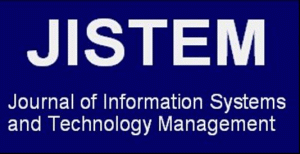This paper aims to describe the budget system utilization applying the case study methodology in studying two large Brazilian corporations. The analytical framework is based on contingency theory. In this framework, five items were studied: technology, participation, the budget follow-up process, integration, and the utilization emphasis. Also, five more items related to the corporate environment were studied: size, diversification, decentralization, market aggressiveness and market share. Both corporations studied use the budget control system as the main tool of managerial control. The medium and low managers do not have participation in the strategic plan process; even the results of the strategic plan process were not made available to the medium and low managers in one of the corporations. The corporation that had a more intense utilization of the budget control system had more workers participation, and tried to apply this system output in corrective action plans. This corporation was larger, had more diversification, more centralization, more market aggressiveness, and also a smaller market share. These results were in agreement almost in their totality, with other research results, and signalized that the variables of the corporate environment help to explain the budget control systems utilization.
Budget control system; Management control; Contingency theory




